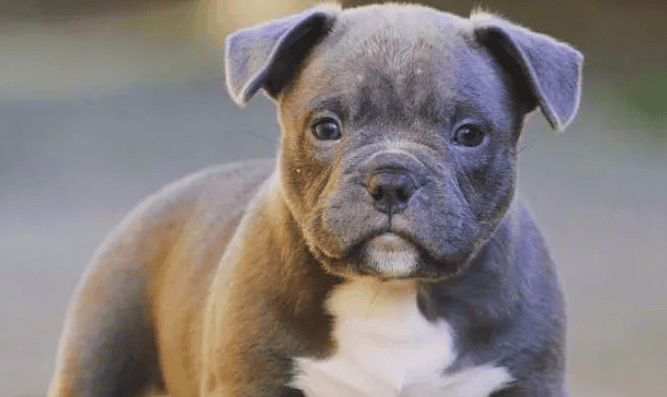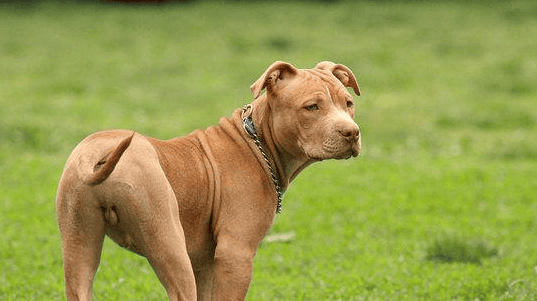The Pit Bull is a breed of dog originating from the United Kingdom. It was originally used for bullfighting and fighting dogs, so it has a strong bite force and tenacious fighting spirit. The pit bull has a burly appearance, a broad head, well-developed jaws, small and round eyes, short and upright ears, a strong body, and various coat colors, usually white, black, brown or mottled. Pit bulls are usually loyal, brave, playful and friendly in character. They are very close to their owners and family members and can also get along with other animals. Pitbulls have high IQs, are easy to train, like to play and exercise, and require a lot of activity and attention, otherwise they will become bored and anxious.

However, Pitbull is also a controversial dog breed because they are Some countries and regions are considered dangerous and even prohibit or restrict breeding. This is mainly because pit bulls have been bitten or killed on many occasions, causing panic and disgust among the public. According to some statistics, pit bulls are one of the dog breeds responsible for the most deaths of humans and other animals, accounting for more than half of all fatal dog injuries. Pit bull aggression and dangerousness are influenced by many factors, including genetics, environment, training, socialization, health and hormones. Some pit bulls may attack because they have been abused, neglected, provoked, or frightened, while some pit bulls may become unruly due to a lack of control, discipline, or leadership. Regardless, pit bull aggression is unacceptable and needs to be stopped and corrected promptly.
Pit bull breeders should be responsible for their dogs and provide them with appropriate care, education and management to ensure their safety and happiness, and to avoid causing trouble and harm to others. Pit bull breeders should abide by the following principles:

- In choosing a pitbull Before buying a dog, you should fully understand the characteristics, needs and risks of this dog breed, and ensure that you have the ability and conditions to raise them well. You should also consider whether the breeding of pit bulls is allowed or restricted in your area, and whether you need to apply for relevant licenses or registrations. Waiting for procedures.
- Before buying or adopting a pit bull, carefully choose reliable sources, avoid getting defective or violent pit bulls from bad breeders or fighting rings, and check the health of your pit bull. Status and vaccination records to prevent disease and infection.
- After raising pit bulls, they should be sterilized or sterilized in time to control reproduction and reduce aggression caused by hormones. They should also undergo regular physical examinations and deworming to maintain health and health.
- When training pit bulls, use positive methods such as rewards and encouragement rather than punishment and violence to build trust and respect, and also teach them to obey and follow commands to enhance control and discipline.
- When socializing pit bulls, start at an early age and expose them to different people and animals to develop their friendliness and adaptability. Also avoid engaging them in any form of dog fighting or biting. Bite game to prevent their aggressive and competitive nature.
- When managing Pit Bulls, provide them with enough activities and toys to consume their energy and interest, as well as appropriate food and water to satisfy their nutrition and hydration .
- When taking your pit bull out, wear a suitable collar and leash to prevent them from running away or charging, and also wear a mask or muzzle to prevent them from biting. or scare others.
- When encountering a pit bull attack, stay calm and rational, try to avoid looking directly into their eyes or making threatening movements, and try to protect your head and neck to avoid Reduce damage. If possible, seek help from other people or animals, or use sounds or objects to distract them so you can escape or subdue them.
In short, pit bulls are a dog breed with a long history and complex personalities. They have both admirable and loved advantages and frightened and disgusted shortcomings.
Pit bull breeders should be responsible for their dogs and provide them with appropriate care, education and management to ensure their safety and happiness, and to avoid causing trouble and harm to others.
Non-breeders of pit bulls should also have an objective and fair understanding of this dog breed, and should not generalize or discriminate, and should not easily provoke or scare, so as not to cause unnecessary conflicts and injuries. Only in this way can we live in harmony with pit bulls and share this wonderful world.

 扫一扫微信交流
扫一扫微信交流
发布评论